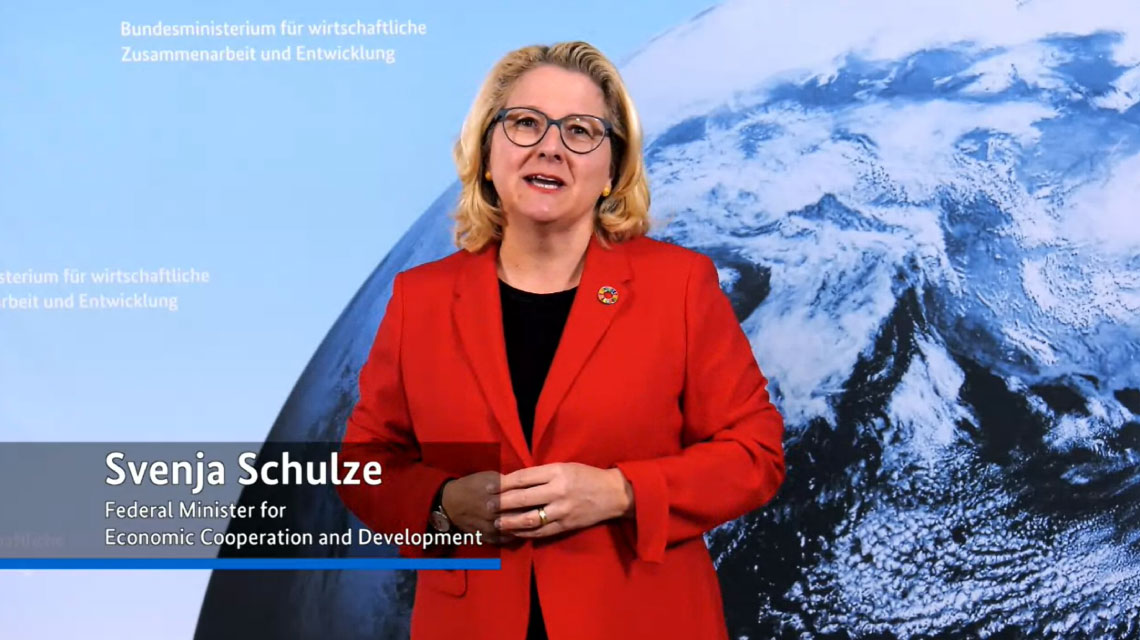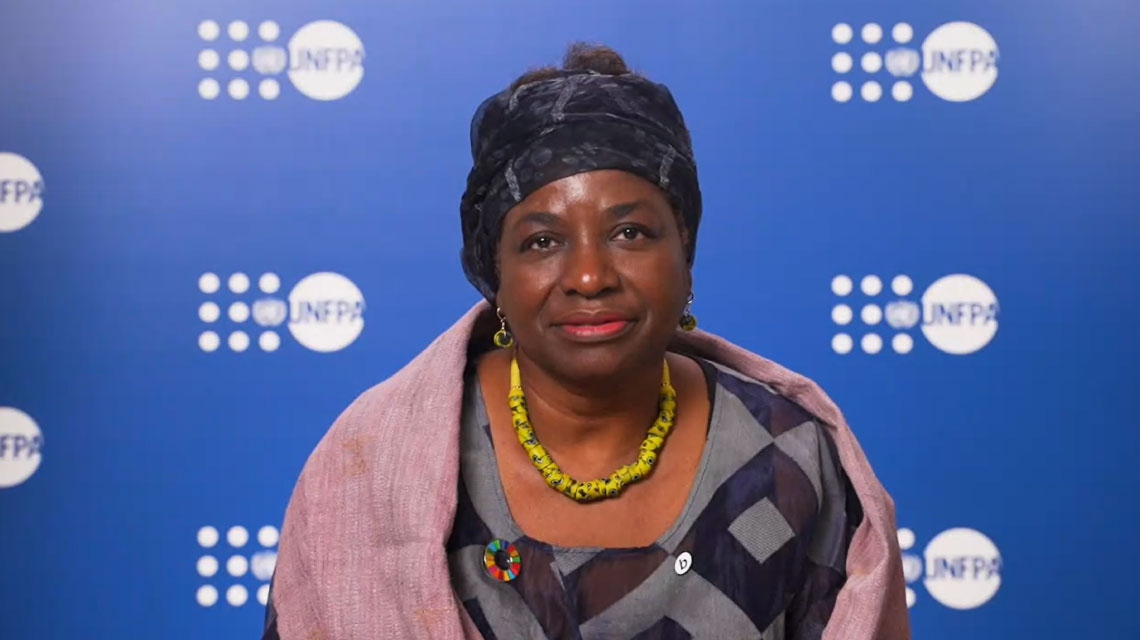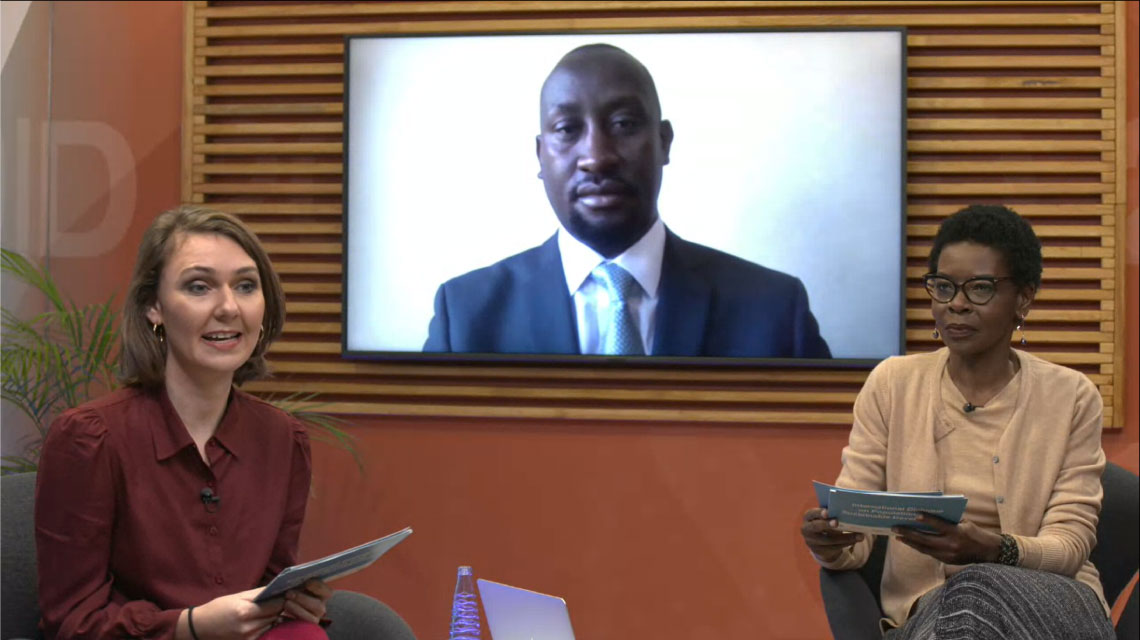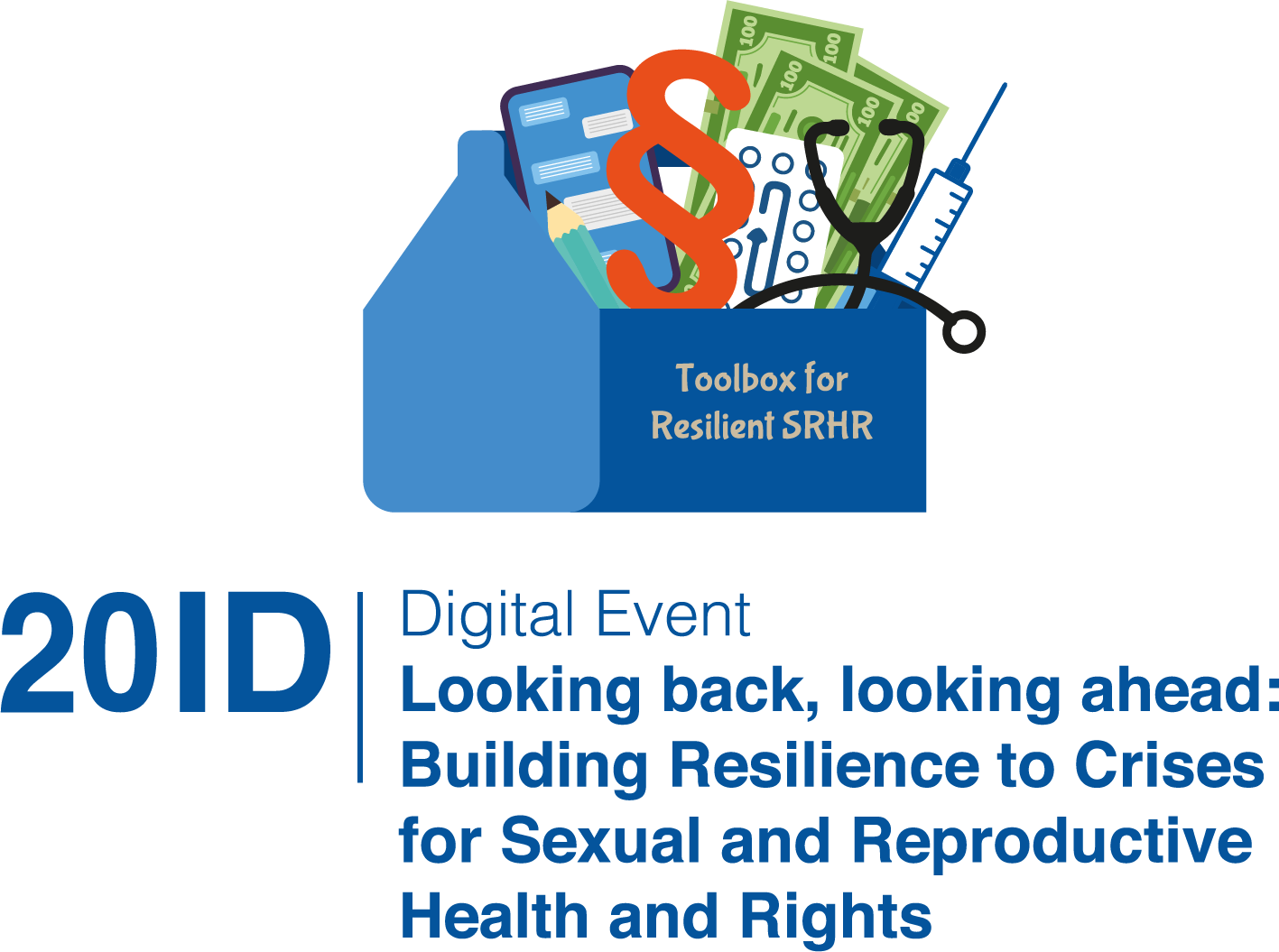20th International Dialogue on Population and Sustainable Development
At the 20th International Dialogue on Population and Sustainable Development over 100 experts looked back and ahead on building resilience in the face of crises concerning sexual and reproductive health and rights.
The virtual conference on population and sustainable development brought together around 100 experts for an exchange on experiences, best practices and creative solutions from October 27 to 28, 2022. The aim was to identify how resilience can be fostered to uphold sexual and reproductive health and rights (SRHR) in times of crises. Over the course of two days, participants had the opportunity to exchange on best practices in relation to ensuring SRHR funding, building the resilience of SRHR services and ensuring sexual and reproductive rights in times of crises.
Women and girls must be able to choose their own path in life

Federal Minister for Economic Cooperation and Development Svenja Schulze, Copyright: 20ID/g+h
In her welcoming video message, Federal Minister for Economic Cooperation and Development Svenja Schulze pointed out that health is a human right that needs to be secured. To do so health systems have to be strengthened so that they reach all people. Also, the international community needs to be better prepared for crises.
Minister Schulze stressed that her ministry’s feminist development policy advocates for gender equality and women’s self-determination at the international level and in cooperation with partner countries. She explained why this is so relevant for SRHR:
‘It is especially important to me to strengthen SRHR because women and girls have to be able to make their own decisions about their bodies and whether, when and with whom they want to have children. Only then will they have a chance of completing their education and participating equally in economic, social and political life. Only then will they be able to choose their own path in life.’
She concluded that good, comprehensive and affordable health services strengthen people and their families. It gives them hope and opportunities, and it helps prevent unnecessary suffering and saves lives.
There is reason for hope

Dr Natalia Kanem, Executive Director, United Nations Population Fund (UNFPA), noted that the innovations that had emerged in response to the COVID-19 pandemic should inspire hope in us. She lauded leaders’ and health workers’ unprecedented resolve and ingenuity to ensure continued access to sexual and reproductive health and protection services despite the extra challenges the pandemic caused. At the same time, the pandemic showed that working together, including at the multilateral and inter-governmental levels, is crucial for finding common solutions to global challenges. Dr Kanem thanked the German government for its global leadership and commitment to pursuing feminist foreign and development policies.
Human lives are not lived in silos

According to Clive Mutunga, Senior Research and Policy Analyst, African Institute for Development Policy (AFIDEP), a cross-sectoral policy approach is key to ensuring SRHR. COVID has been a wake-up call to development practitioners, he said, in that it showed governments and development practitioners that pressing development challenges require cross-sectoral solutions:
‘Human lives are not lived in silos! I have seen the power of cross-sectoral planning, policy and programme action’.
He underlined that investments in sexual reproductive health and rights can achieve multiple benefits for human health and well-being as well as for planetary health. He encouraged delegates to ensure that this recognition be translated into programme action.
We need rapid feminist action at the political level

Dr Alvaro Bermejo, Director-General, International Planned Parenthood Federation (IPPF), had concrete ideas how to bring about change. For him, winning hearts and minds is key for SRHR. The International Dialogue offers an innovative platform for this. In addition, Dr Bermejo encouraged more countries to follow the German example and move towards feminist foreign-, development-, and humanitarian policies as a powerful approach to building resilience:
‘To build resilience, we need to understand that operational responses are not enough. We now need rapid political feminist action.’
Let youth be part of the solution

Summarising the International Dialogue’s take-home messages IPPF Youth Champion, Amour Dieu-Donné Vodounhessi, explained why resilience is indispensable:
‘The world is increasingly insecure. And it is becoming more and more clear that the rights we enjoy can be taken away at any moment. The fights to gain those rights are long and hard. This is why we need resilience - resilience is the key.’
He invited delegates to constantly learn and adapt themselves to new challenges, whether they are engaged at the heart of the action or involved in joining the dots of the bigger picture. He closed the conference by stressing that the interests of young people should be at the centre of every action taken, every service adapted and every strategy formulated to solve the problems discussed over the past two days: ‘Young people can be the solution. We are the present. We are the future.’
